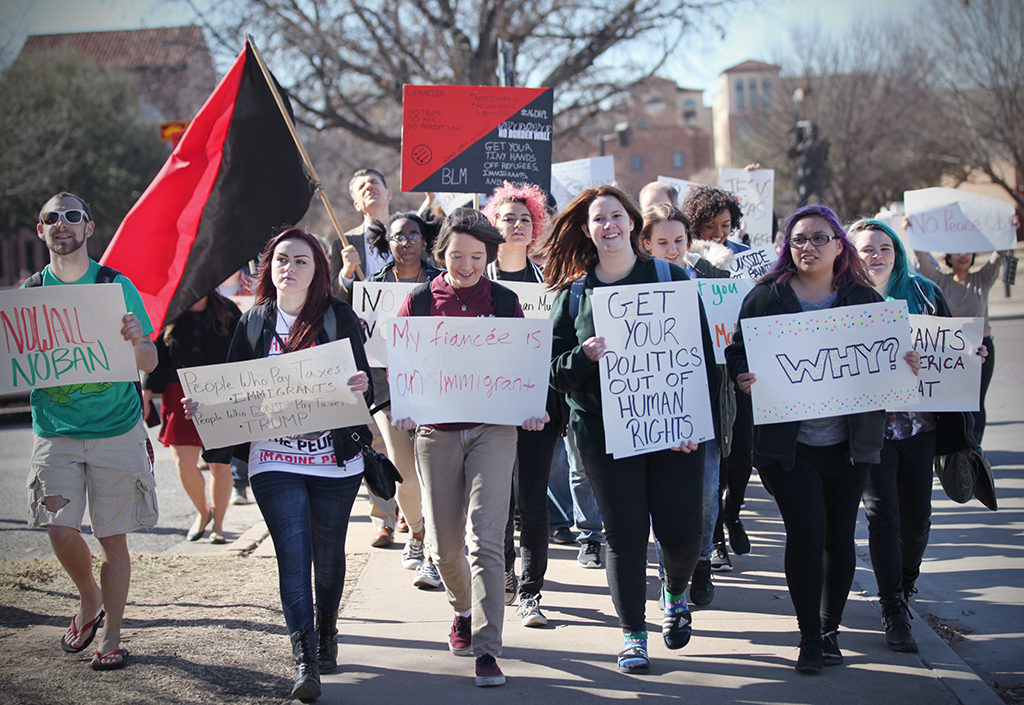
Students gathered at the Jesse W. Rogers Promenade, or Mustangs Walk, the afternoon of Feb. 1 to rally against U.S. President Donald Trump’s executive order on immigration. Trump’s executive order was put into action with the intention of mitigating the risk of a terrorist attack within the U.S. The executive order also called for improved vetting of individuals wishing to enter the country. People across the nation have spoken out against the executive order calling it “unconstitutional” and “xenophobic.”
The rally, a joint venture between the Sociology Students Association and People Respecting Identity Diversity for Everyone included roughly 70 students and some faculty.
“After everything that happened on Friday [executive order], I felt like there are many international students here at MSU who probably feel unsafe who have parents who are immigrants, and they’re worried because ‘who’s next?’,” Maureen Trussell, humanities senior and organizer of the rally, said. “I wanted people to feel supported and loved, and to know that they are not alone.”
Students at the rally expressed dissent towards the executive order, holding up signs that read “immigrants make America great,” and, “you belong, stay strong.” MSU is an international school hosting students from 53 countries, and is also the workplace of numerous professors who have immigrated to the United States.
“I don’t understand exactly what it’s [executive order] about because, obviously, it’s somewhat Muslim [targeted], but there’s other Muslim countries that weren’t banned,” Cecilia Pasillas, sociology sophomore and PRIDE treasurer, said.
She said that the countries listed on Trump’s executive order had not produced a terrorist attack on U.S. soil, while some countries that had produced terrorist attacks such as Egypt and Saudi Arabia were not on the list.
“He has business ties with the countries that aren’t banned. Maybe it’s the money? I just want to know ‘why?'” Pasillas said.
Pasillas said she stands with a group of people who ask the same question as her, wondering why countries like Saudi Arabia, who had ties to 15 of the 19 9/11 hijackers, weren’t put on the 90 day ban list. Some students in the rally declared the executive order a “tool of fear,” stating that it unjustifiably demonizes a religious group. Students said they fear that the executive order will only widen the “racist hole” in the United State’s heart.
“The legacy of segregation is still very heavy in this country,” Aaron DeVaul, psychology junior, said. “I believe that all people are created equal, no matter their background, or their position in the world. Seeing the exact same cycle of oppression being seen in the Muslim community worldwide today, I believe that all people should be able to live in this country free and able to pursue their dreams to the highest degree.”
Some faculty joined in the rally, taking their own stance.
“We are very angry at the governor because he just put a freeze on all hiring in state universities in Texas and we have four job searches open and now we don’t know what we’re going to do,” Kirsten Lodge, English, humanities and philosophy professor, said. “I think they [the executive order and Gov. Abbot’s hiring freeze] are related because the governor just all of a sudden enforced this ban out of the blue just like Trump did.”
Lodge finds the rally to be appropriate in light of the recent political events.
“It’s good, in general, for students to get politically involved no matter what side they’re on,” Lodge said.
Wearing his “Make America Great Again” hat, Brady Burross, engineering senior, watched as the rally took place.
“A lot of things are misinformation. They [the students in the rally] say it’s a Muslim ban, but there’s over 40 Muslim countries that can still travel freely,” Burros said. “He’s only banning countries that Obama put on the terror list. It’s just for 90 days, just a second to get our breath, fix the vetting process, and then take it from there. I never knew the government could work this fast.”
The executive order bans entry to the United States from seven Muslim-majority countries — Iran, Iraq, Syria, Libya, Somalia, Yemen and Sudan — for 90 days, and suspends all refugee admission for 120 days. The order can also be extended upon further review by President Trump. In addition, the executive order states “the Secretary of State or the Secretary of Homeland Security may submit to the President the names of any additional countries recommended for similar treatment.”
The current vetting process for gaining the status of refugee in the United States can take at least two years, with extensive background searches and intense interviews.
According to an analysis of terrorism immigration risks by the Cato Institute, no person who has been accepted into the United States as a refugee, Syrian or otherwise, has been implicated in the execution of a major fatal terrorist attack since the Refugee Act of 1980.
Terrorist attacks often reportedly come from within the United States.
Omar Mateen, the man who shot and killed 49 people at Pulse nightclub in Orlando, Florida, was an American citizen, born in New York. His parents immigrated to the U.S. from Afghanistan. Mateen’s widow, Noor Salman, grew up in Rodeo, California. Her parents immigrated from the West Bank.
Neither Afghanistan nor the West Bank are listed in the countries banned by the executive order.
The San Bernardino shooting, which reportedly inspired Trump’s travel ban, was carried out by a 28-year-old Syen Rizwan Farook, born in Chicago, Illinois. His wife, Tashfeen Malik, who was born in Pakistan and later moved to Saudi Arabia, came to the US on a K-1 fiancé visa.
Neither Pakistan nor Saudi Arabia are listed in the countries banned by the executive order. The K-1 fiancé visa program remains available for application.
The worry of an increasing hatred towards Muslims in Wichita Falls and Muslim students at MSU is becoming a more possible and dreadful future, according to some of the students in the rally. Students of the Muslim Student Association, or MSA, know the fear more than most. The MSA is new to campus, its members coming together to form an organization they say is needed now more than ever.
“My parents came from countries where it was unbearable to live, and I thought this country was supposed to welcome people,” Lena Azzouz, psychology junior and MSA member, said. “We always act like we’re the moral policemen of the world, and we’re supposed to accept people, but where is that? I don’t see that anymore and it’s really upsetting.”
MSA members said they felt unfairness and confusion when Trump put the executive order into effect.
“People shouldn’t be forced to have to go home when they’re already here to get an education and make the world a better place. They should be able to stay in their country,” Karema Sallam, business management sophomore and MSA member, said.
Some members feel that the order is offensive.
“A lot of people see these refugees as these uneducated, very corrupt, savage people, but they’re not. We tend to blame the people that are effected. We tend to blame the oppressed instead of the oppressor,” Asma Mohammed, radiologic science freshman and MSA member, said. “They didn’t ask for this. They didn’t ask to leave. It was either life or death, or try to come here [the U.S.] to survive. I think it’s very unfair how we’re supposed to be helping the ones that need it the most, but instead we’ve turned our backs completely.”
The MSA joined in the rally to show that they believe the actions of the few do not reflect the many, and that they’re not going to be persecuted for the actions of another.
“When a terrorist attack happens by a Muslim, Muslims as a whole are supposed to condemn the terrorist. They make us feel as if this is on us when we completely condemn that [murder] in our hearts. Christians don’t have to apologize for the actions of the KKK every second of their lives, but we are expected to apologize for these terrorist attacks that we completely condemn and hate with all our hearts,” Azzouz said. “Why are we taken out of context like we’re not American? It hurts us too.”
MSA members stressed their patriotism because they see themselves as Americans, and wish that others would see them as Americans too.
“Why do I, as a Muslim, have to explain myself in class? Have to defend myself and my whole religion in front of everyone? To my professors, some of them are very unaccepting of everything, and do I not have the same rights as everyone else? I’m an American citizen just as much as everyone else is,” Sallam said.
The executive order is expected to have little impact on the school according to University President Suzanne Shipley, but some students think otherwise.
“It [the executive order] divides us in a way, but if anything this demonstration today proved that it can unite us,” Trussell said. “Especially if we all fight for what we believe in – equality, acceptance, inclusion, diversity. Everything that makes this country great. I feel like if we make our voices heard, then this can be a unifying thing.”
Students and faculty in the rally shared concern for the students and faculty effected by the ban, and the rights that are slowly being taken away from them as citizens or legal guests in the United States.
“I think that any kind of restriction on the freedom of travel is abusive and I think it goes against the idea that in the constitution there is this notion of the pursuit of happiness and that pursuit involves travel, the right to education, the right to healthcare, and the right to a space where your particular human rights are not taken from you without your permission,” Brinton Coxe, assistant professor of humanities, said.
The students of the SSA, PRIDE and MSA said they want to reach out to those effected by the ban, to encourage them not to give up hope.
“We are with you, and we love you and we support you and we are fighting for you. We’re going to fight as hard as we can and they should too. They shouldn’t give up because this country is great and we would love to have them,” Trussell said.
Executive Order Protest 2017
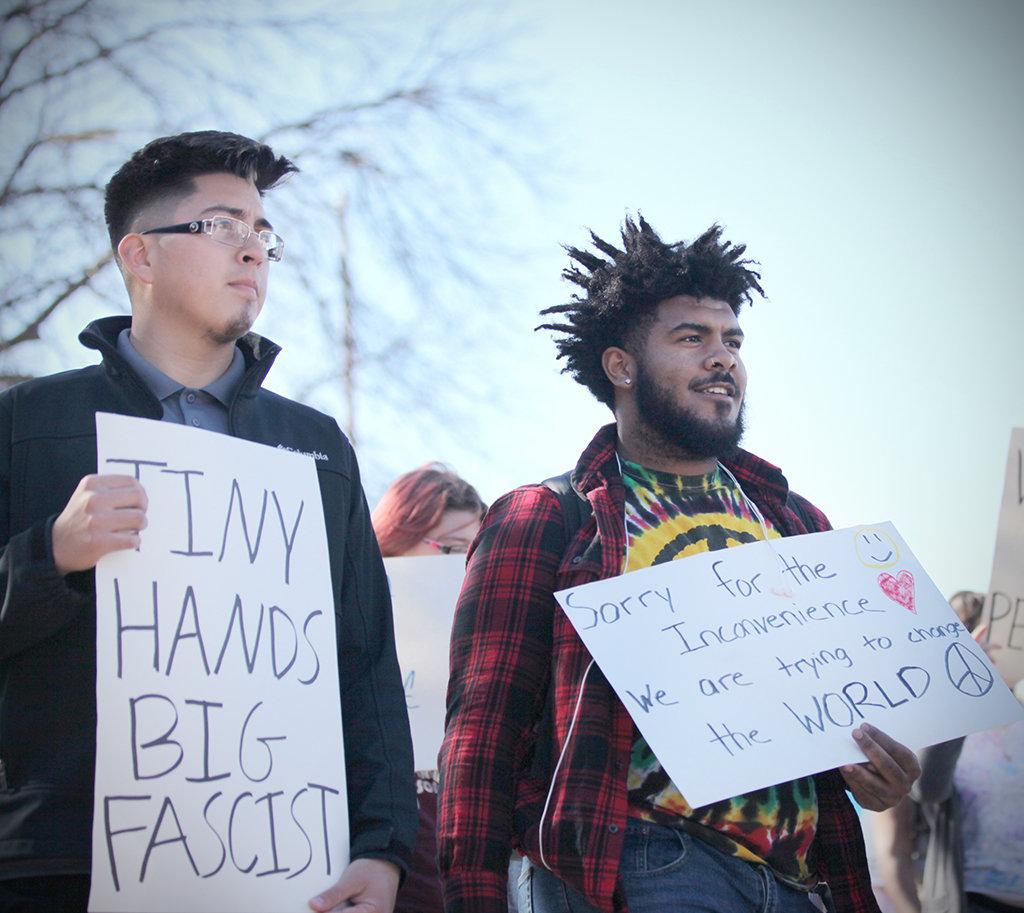
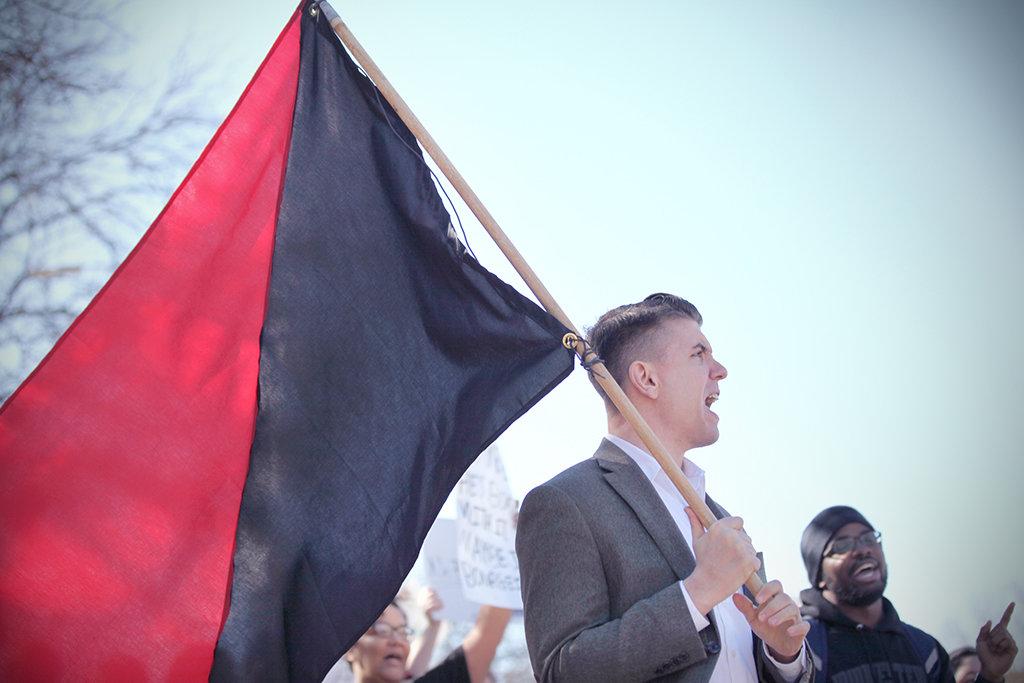
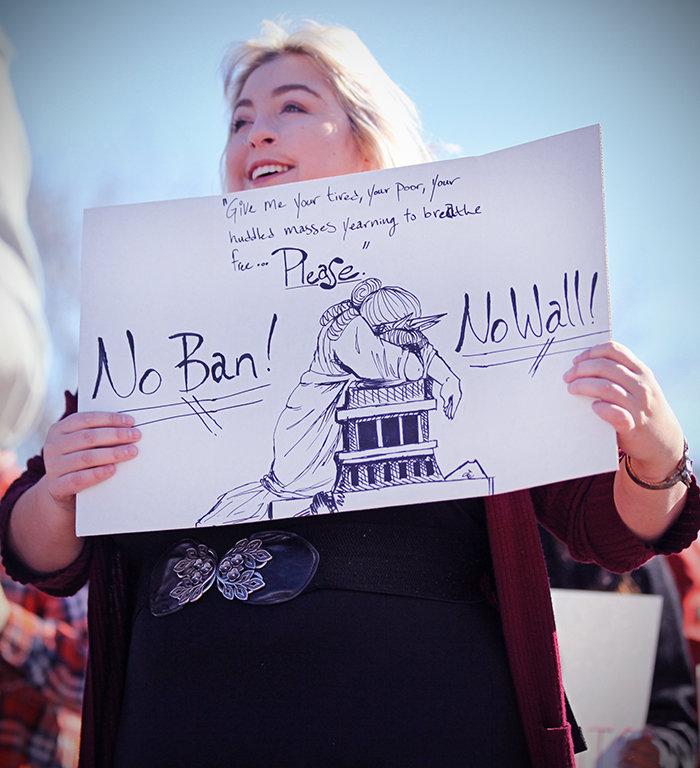
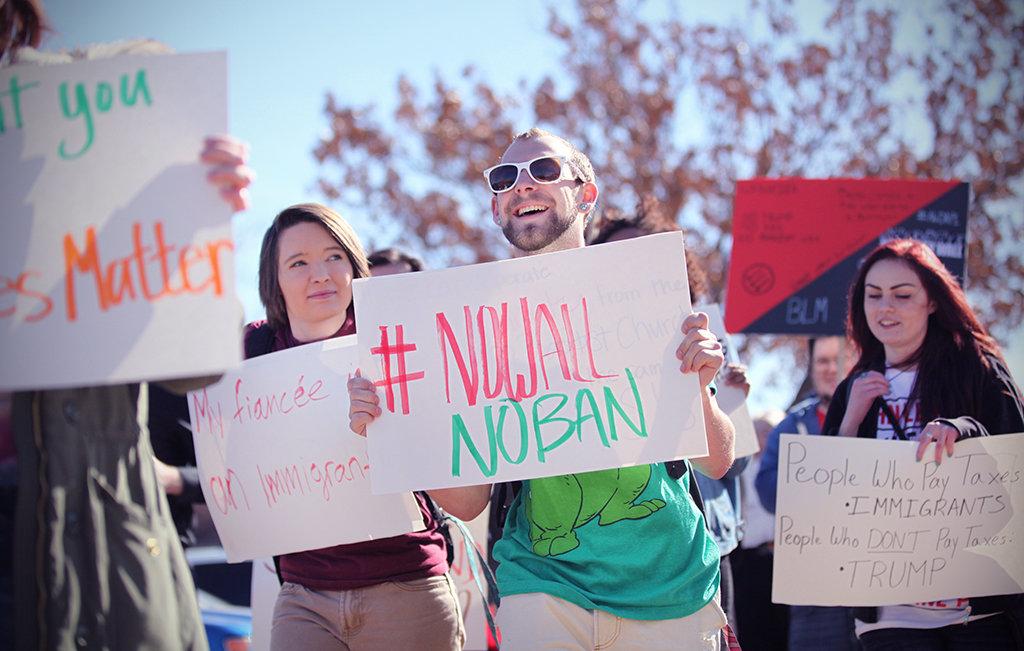

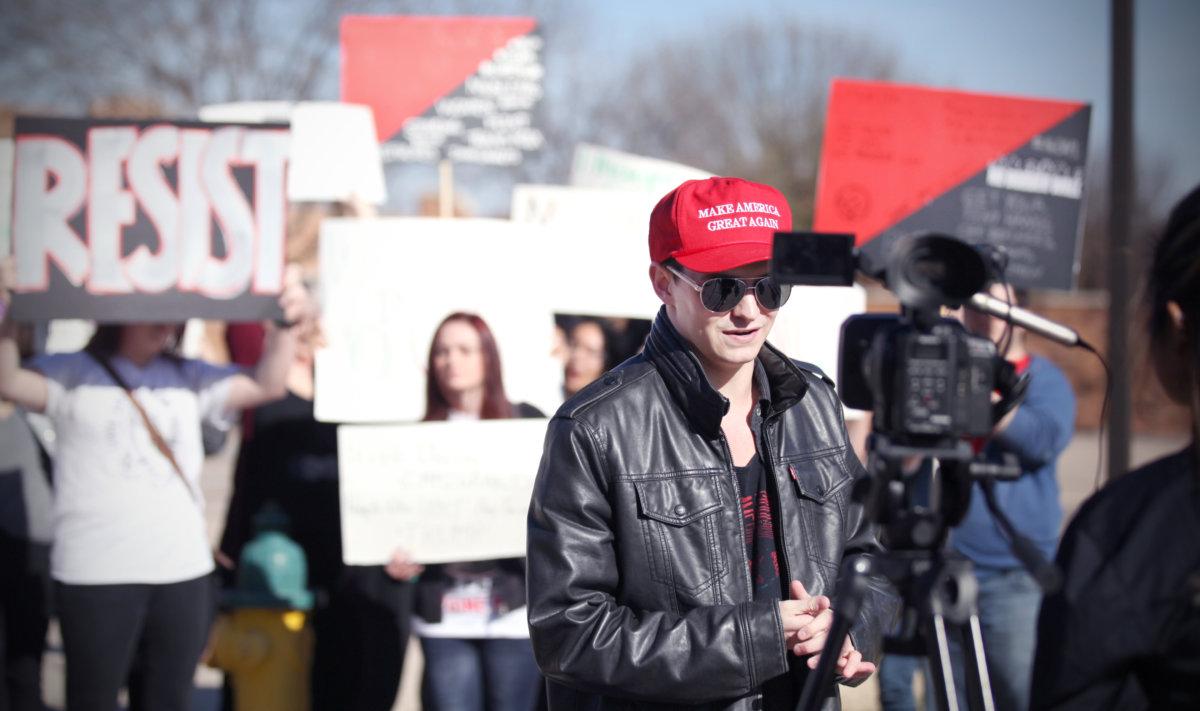

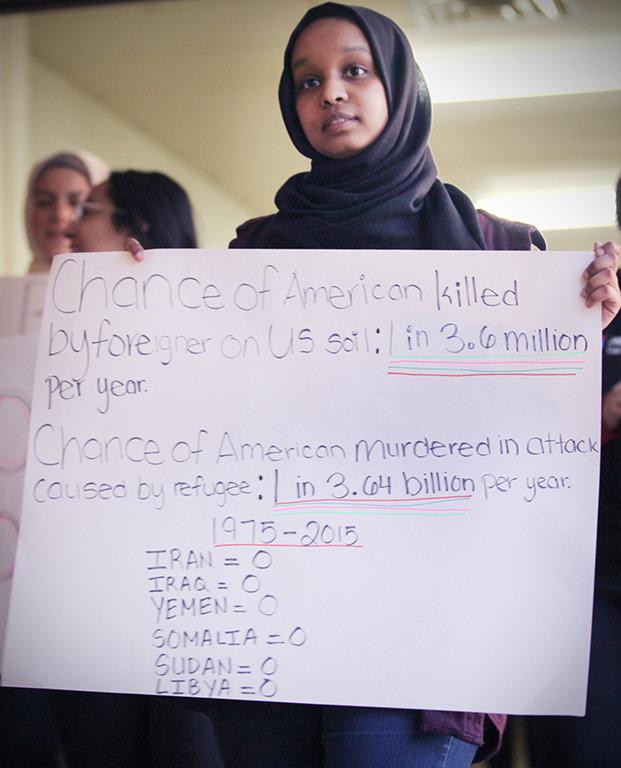

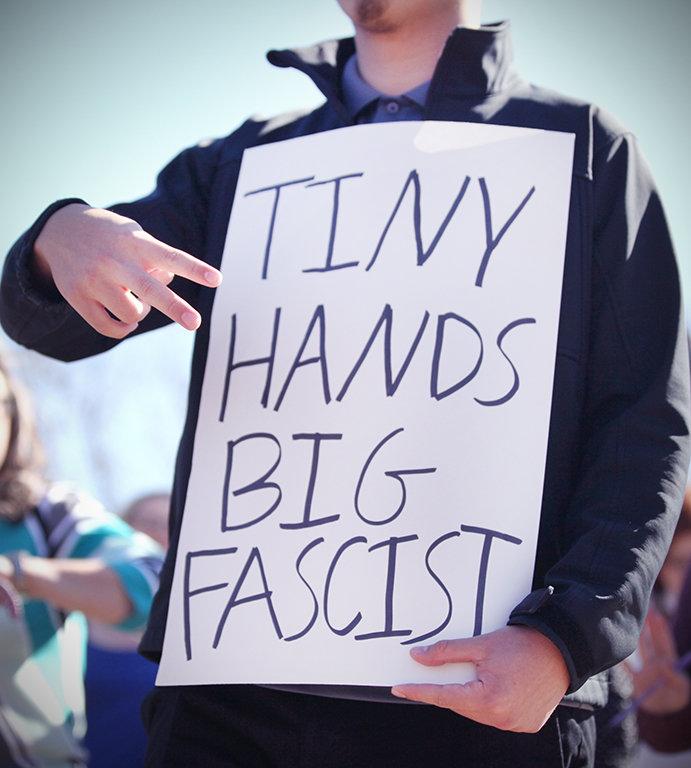
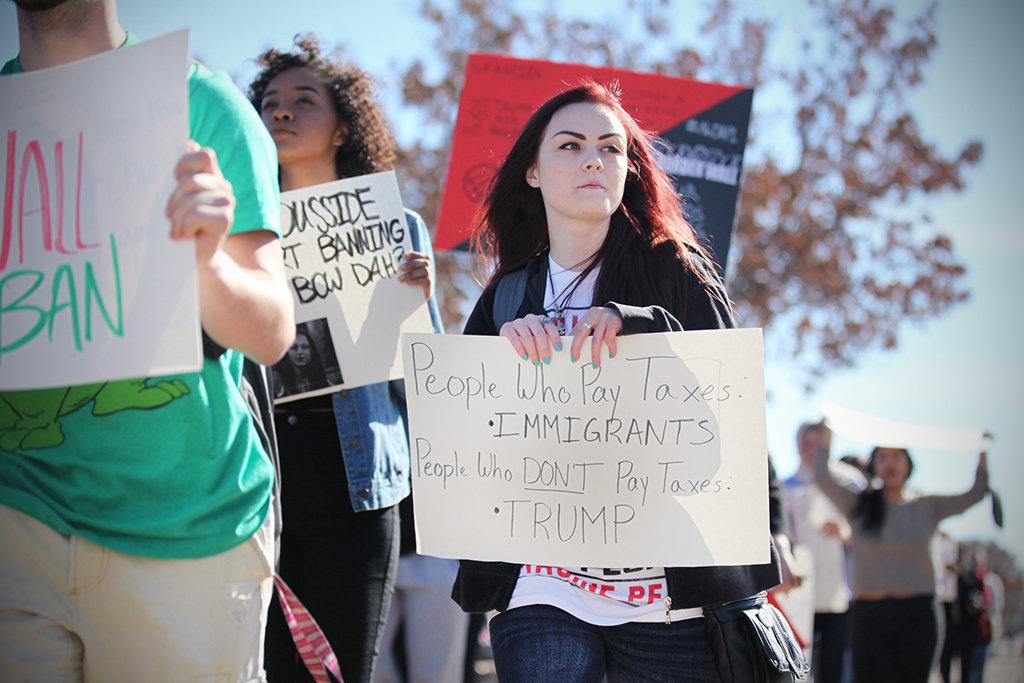
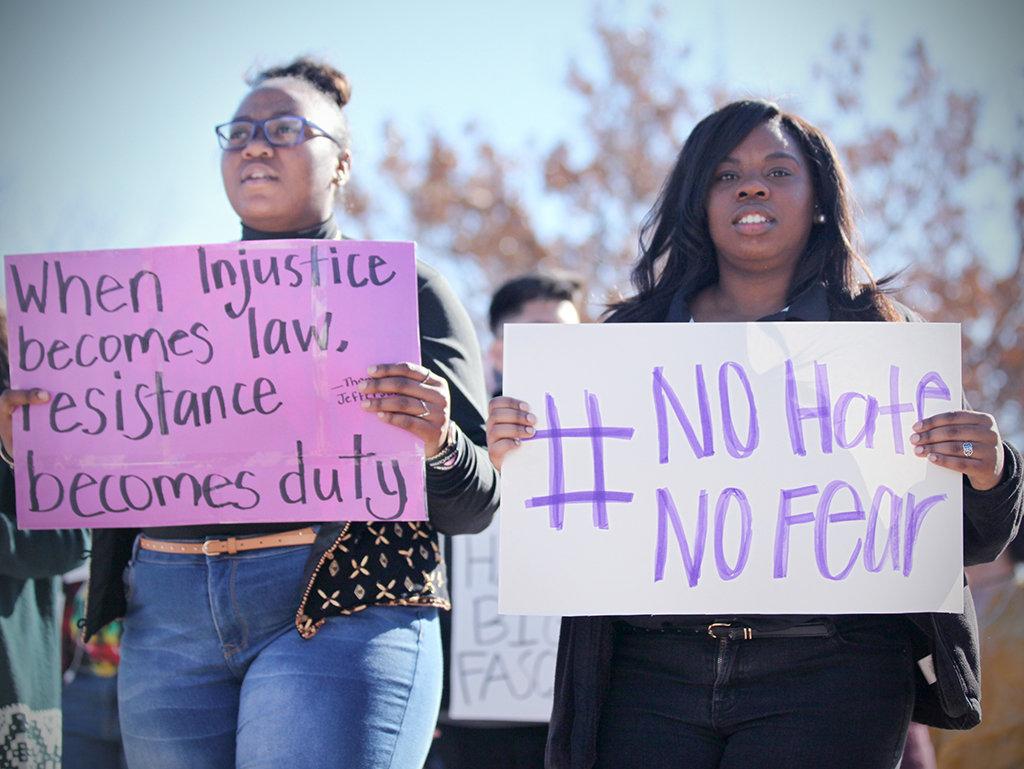
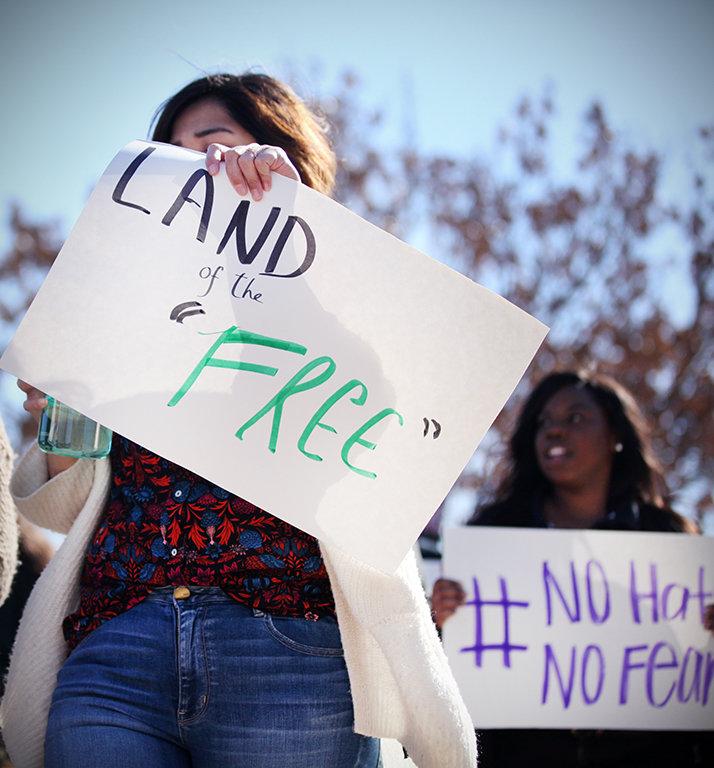
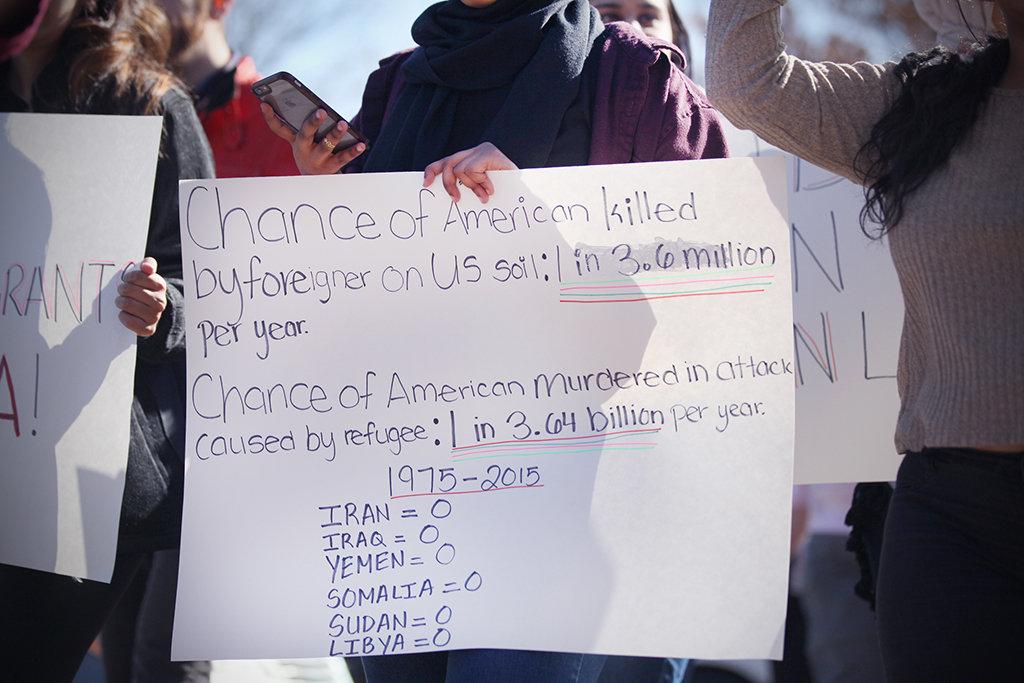
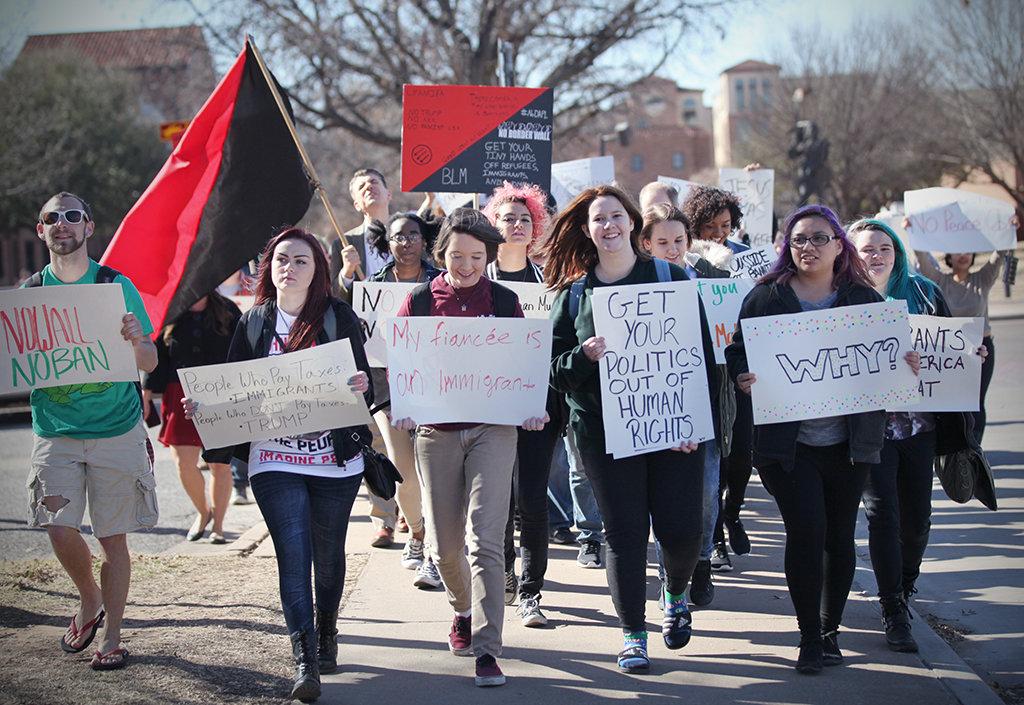
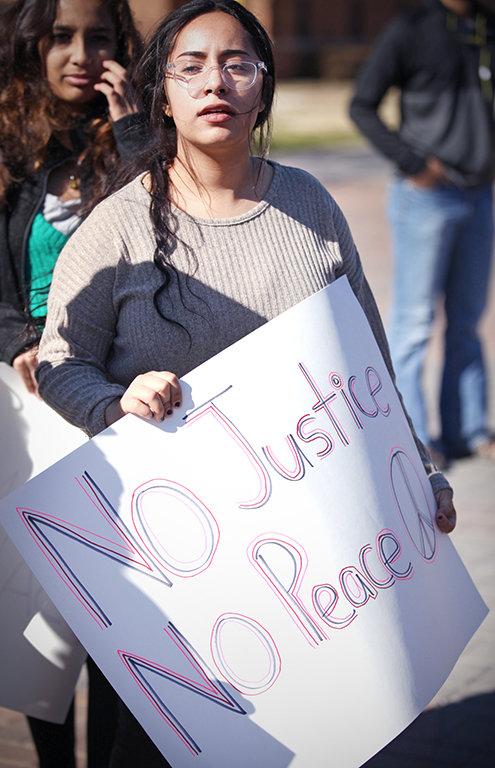



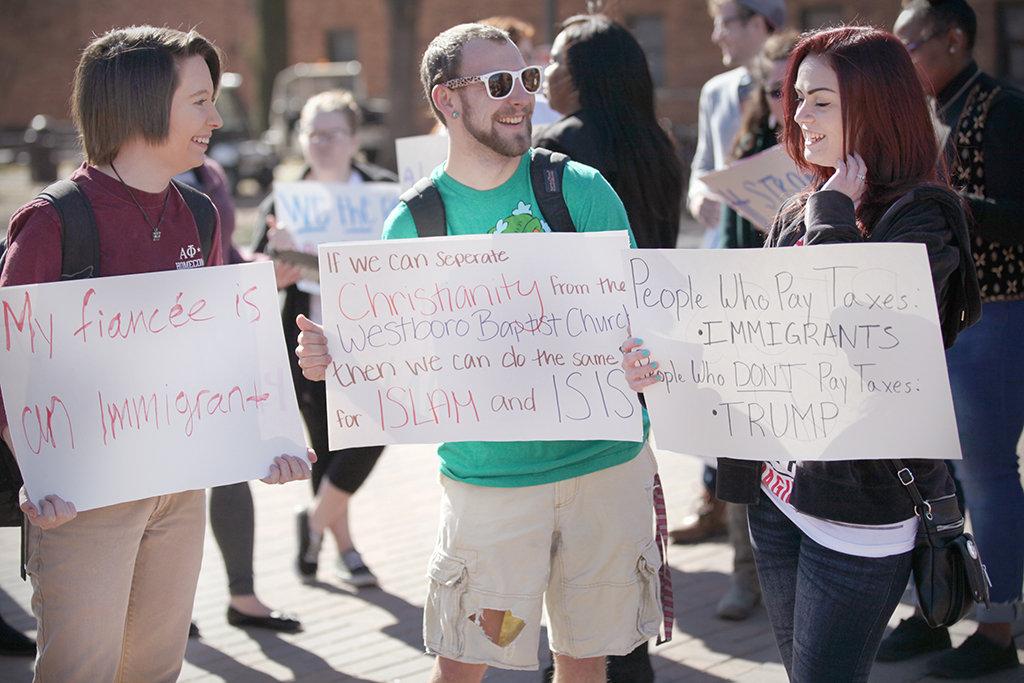
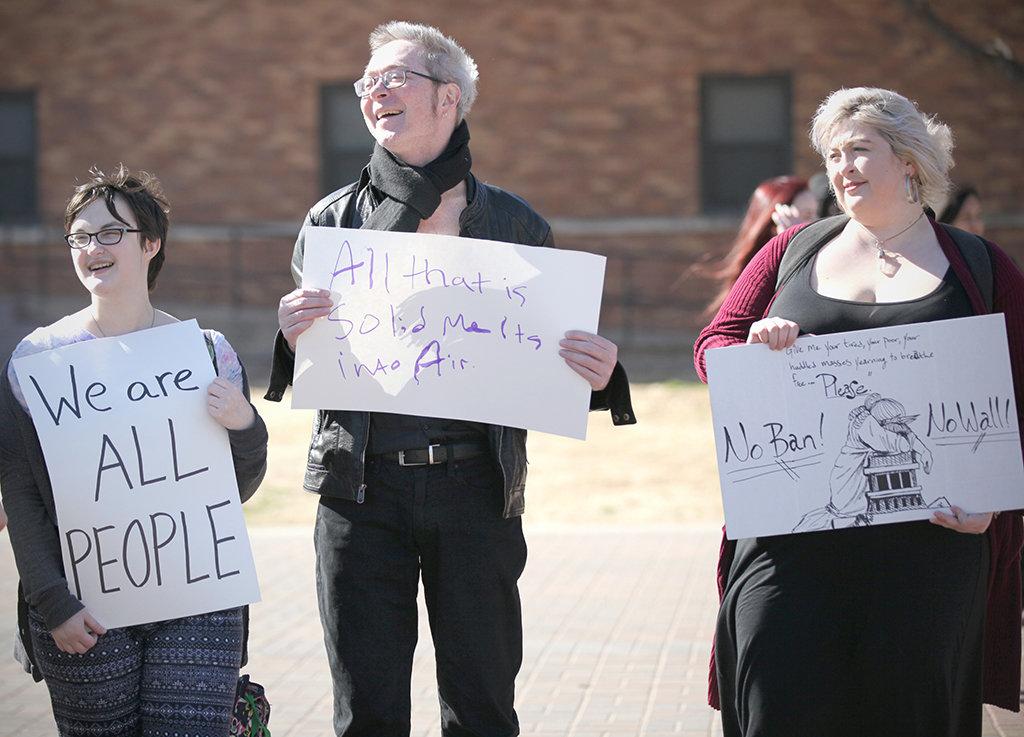






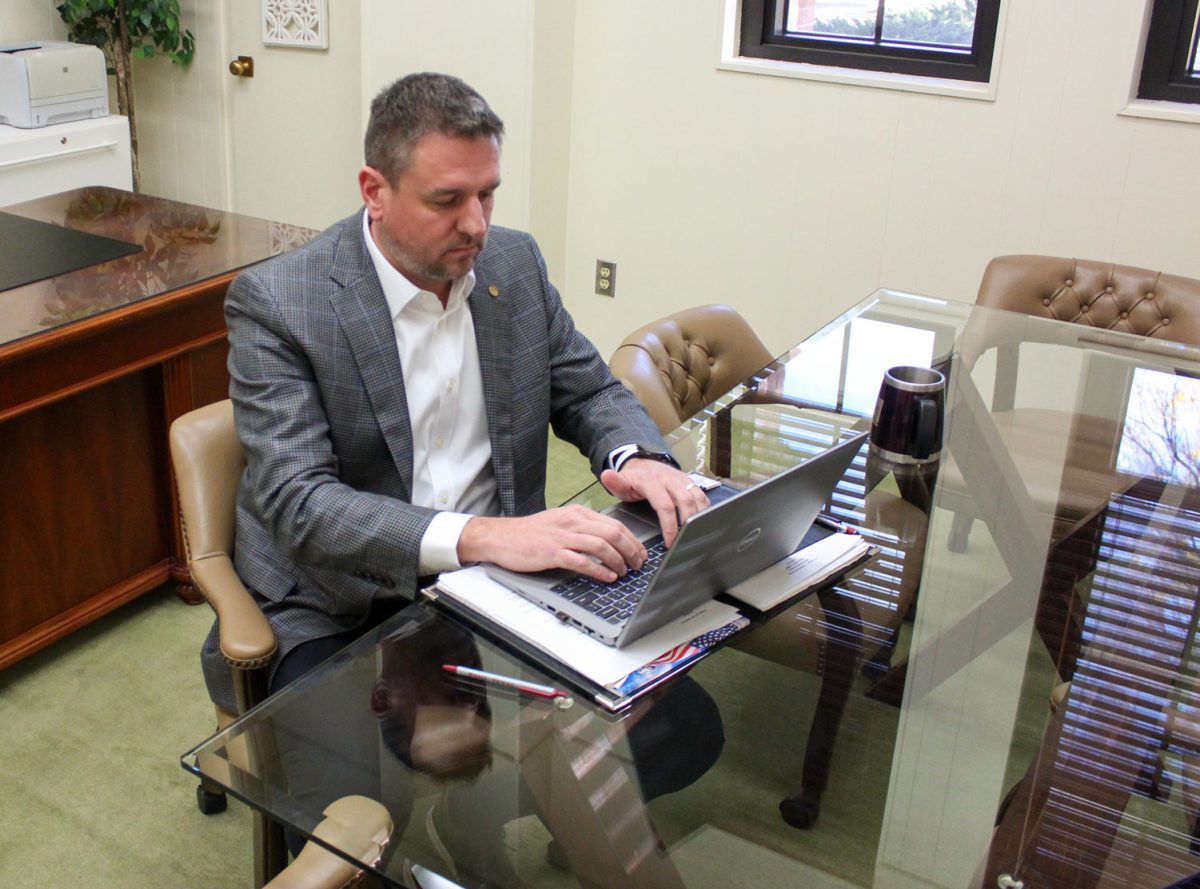

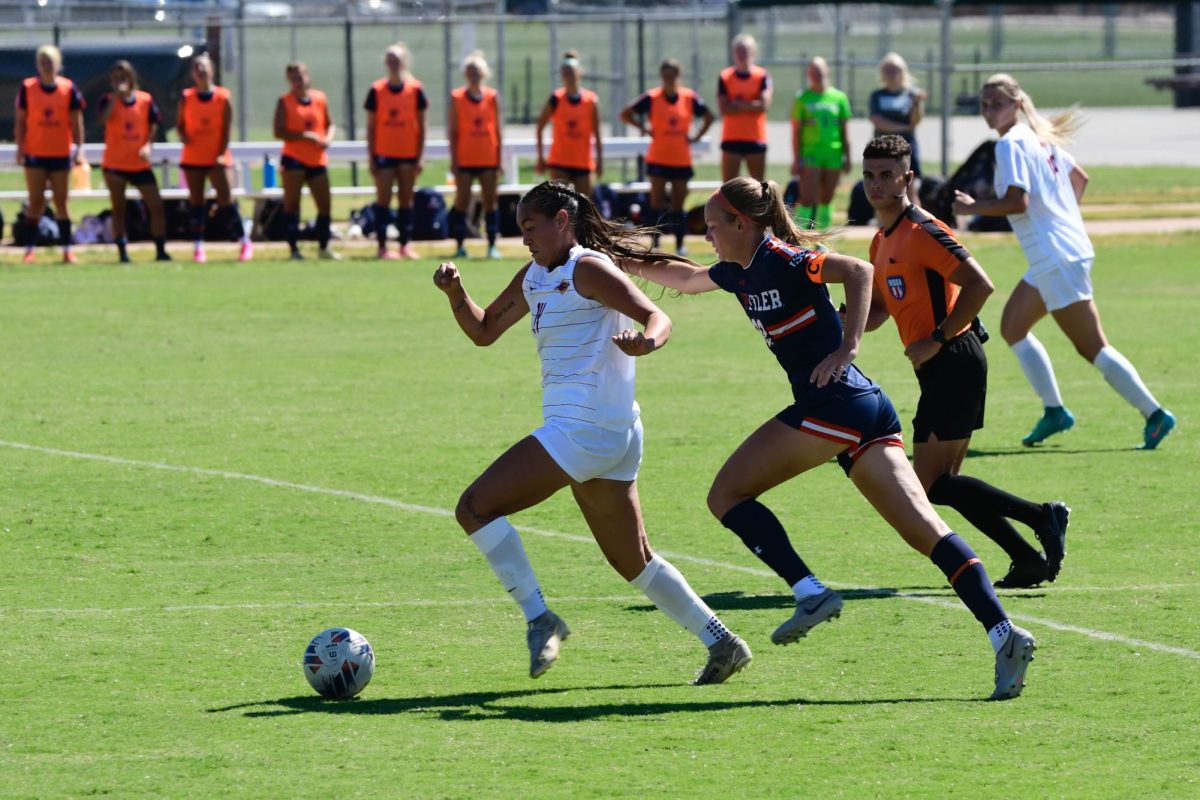

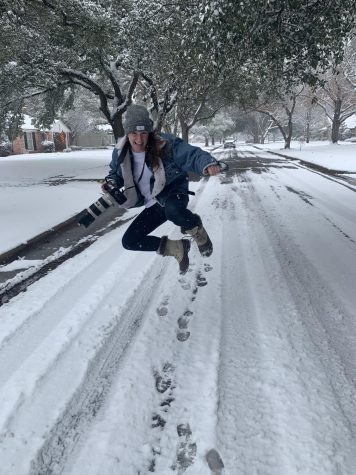
Aubrey • Feb 5, 2017 at 8:54 PM
????????????????????????????????
Teresa • Feb 2, 2017 at 4:21 PM
Good Article! Thanks for sharing.
Robert • Feb 2, 2017 at 2:12 PM
“…probably feel unsafe who have parents who are immigrants, and they’re worried because ‘who’s next?’” Funny, did they bother with this question about the victims of terrorism on our soil?